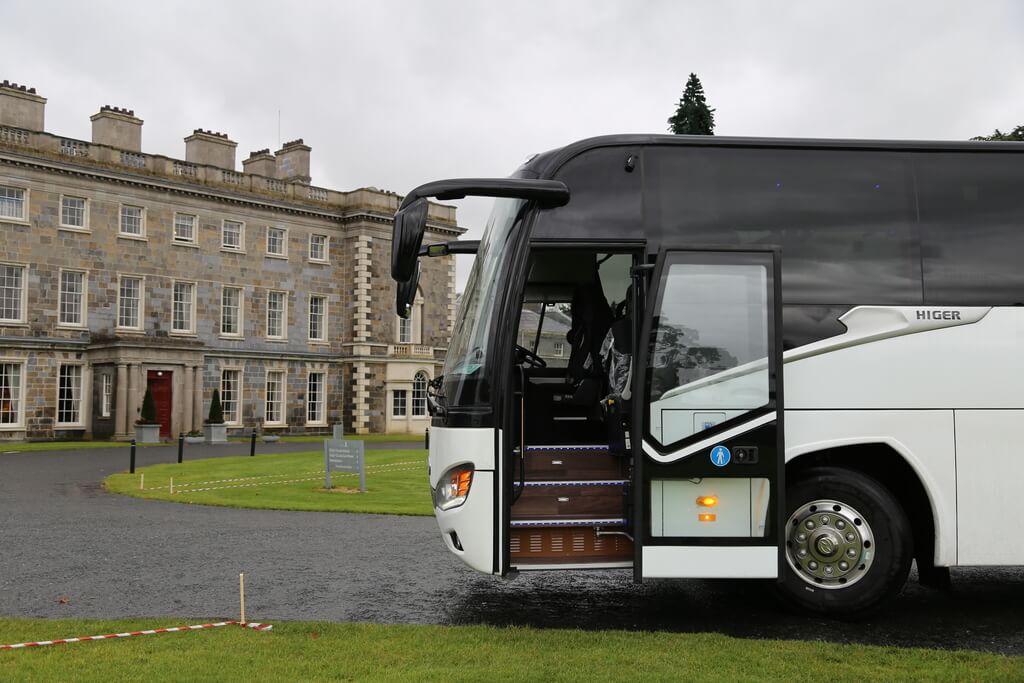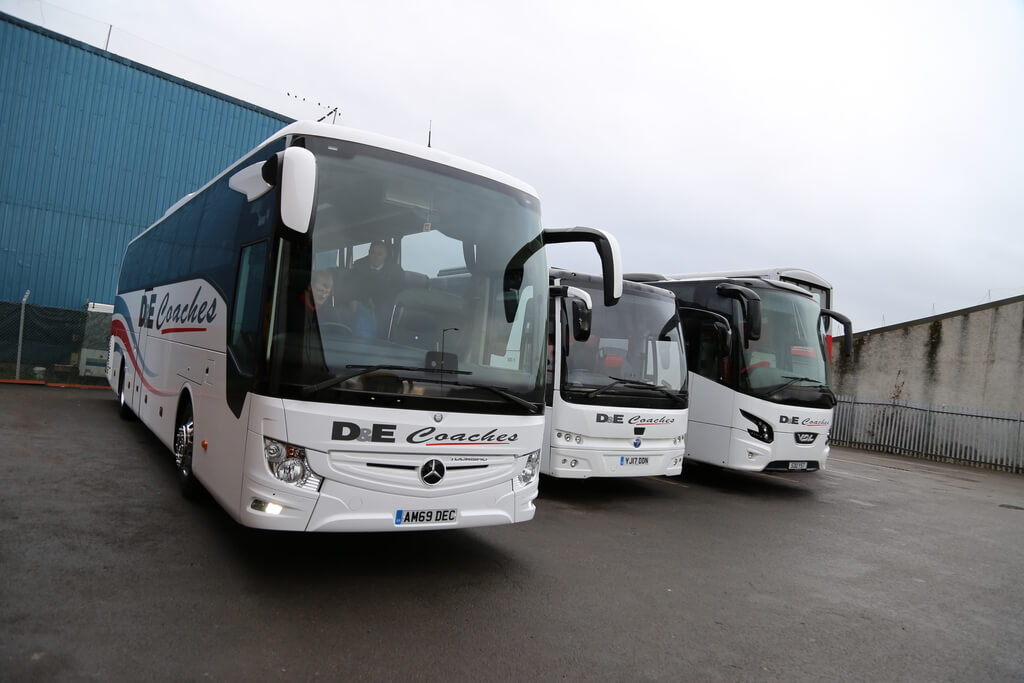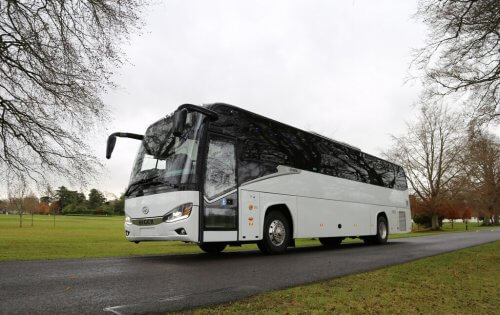Shortly before Christmas, the RHA announced details of its forthcoming new membership option for coach operators. Jonathan Welch looks at what the RHA intends to offer the industry
There has been some degree of dissent in the coach sector at the way it has been treated during the coronavirus pandemic, and some have voiced dissatisfaction at what they see as lack of representation from existing trade bodies. This manifested itself early on in the pandemic with events such as Honk for Hope, and more latterly, campaigns such as Wish You Could Hear, lead by Paul Coates and Ian McCarron of specialist insurance broker McCarron Coates, which set out to add weight to existing voices.
In a move which some may see as a surprise, the RHA, which has a long history of representing other road transport sectors, has announced that it is to introduce a specialist RHA Coaches membership which it hopes will appeal to members across the industry. Richard Bamber, Managing Partner of Runcorn-based of Anthony’s Travel was one of a number of people to express dissatisfaction, which led to him leaving his role with the CPT in late 2020.
Speaking to CBW, Richard suggested that he felt the direction the CPT was taking was the opposite of what its regional conferences were seeing, and said it didn’t sit well with him. Unsurprisingly, Richard has been one of those involved with RHA Coaches from the beginning, having been in early talks with the Association about the way forward.
“The RHA was planning to get involved with coaches anyway,” Richard said, highlighting that it does not just cover the traditional haulage sectors, but has a number of specialist divisions representing groups of members. He also highlighted the structure of the RHA, which he called ‘quite refreshing,’ and its ’stronger lobbying power.’ Nonetheless, Richard also stressed that the move is not intended as a sign of disrespect towards the work done by the CPT, which he said was aware of the issues raised by members and had been working to solve them.

By subscribing you will benefit from:
- Operator & Supplier Profiles
- Face-to-Face Interviews
- Lastest News
- Test Drives and Reviews
- Legal Updates
- Route Focus
- Industry Insider Opinions
- Passenger Perspective
- Vehicle Launches
- and much more!
Webinars
In order to introduce its new Coaches membership option, the RHA organised a series of webinars, at which key members of the RHA team spoke about what it would mean for the coach industry and the RHA itself. The first of these took place shortly before Christmas, and the second in early January, and CBW was there to find out more.

Hosted by RHA Managing Director of Operational and Commercial Richard Smith, Membership Director Phil Snowden and Technical Director Paul Allera – names which will no doubt become familiar over the coming months – the first webinar was designed as an introduction to the RHA, to what it does, and what it can offer the coach industry. Welcoming attendees with a brief overview, Richard acknowledged that the coach sector has seen some significant challenges over the last year, and that it will take time for it to come back from being turned on its head. He said that this was one of the key drivers around why the RHA is looking to provide additional support and help shape the future of the sector.
“It is a significant sector which contributes to the economy and to people’s wellbeing,” he continued, explaining that RHAs decision to become involved was about offering support in a way which is relevant, and to that end, RHA Coach membership will be designed to appeal to operators of all sizes. He also emphasised that the RHA has strong relationships with all four devolved powers. Richard concluded his introduction by making it clear that RHA Coaches is coach-specific, as the synergies between the RHA’s existing remit and the coach industry are much greater than with the bus industry.
What is the RHA?
Membership Director Phil took over to present some facts and figures, telling attendees that the RHA represents some 7,500 members across the UK, of which almost 80% operate 15 vehicles or less, with an average of nine, and 90% of the membership operates 30 vehicles or less. He emphasised that it is important to highlight the SME sector, which makes up a significant majority of its members and forms the bread and butter of the RHA’s day-to-day work. In terms of fleet numbers, the RHA represents around 100,000 vehicles in members’ fleets across the country, with a large number of those operated by smaller, family businesses of the style which will be very familiar to those in the coach sector.
“Whether their business is haulage or coaches, they use the same road space. Based on the successes we have, and working closely with the government makes coaches a natural fit for us,” added Technical Director Paul.
One key benefit of being a member of the RHA is the support services it offers. Phil said that this year has been particularly challenging, but the stats showed its helpline had taken in excess of 2,000 calls from operators related to issues such as furlough as well as more common operational problems. Breaking down the figures further, he added that 27% of calls had related to employment issues, and 23% to O-licencing and regulatory matters, highlighting the value of the services it offers as part of its membership package. “No question is too silly or too small,” he said, reminding listeners of the oft-repeated saying that if you are thinking it, someone else probably is too. Some callers, he said, simply want affirmation that what they believe is actually correct.
Phil highlighted too that operators will have access to dedicated coach experts who are in the process of being recruited, so that the best industry knowledge and advice, and pointed to the RHA’s team of dedicated regional area managers who are field-based and able to assist operators on a local level. With the exception of the very north of Scotland, he said, most members are never more than two hours away from a regional manager. Regional compliance managers are also available to assist with regulatory and compliance issues.

Why coaches?
Moving on, Richard went on to explain what he said were the three key things behind the RHA’s decision to get involved in coaches. Firstly, he said, it was already part of the Association’s strategy, having been recognised as an avenue for development in a strategic review two and a half years ago. “There are a number of parallels, whether it be from a support perspective, whether it be from a training perspective,” he said, but recognised too that there are also a number of important differences. Richard continued by highlighting some of those differences, including things like PSVAR, and the obvious one that coaches carry very different loads to HGVs, and spoke of the necessity for the RHA to learn more about the coach industry in order to be able to support it. This process, he said, has already begun, with new staff being sought with the relevant experience. Despite the differences, Richard said that there is a significant read-across and overlap between the needs of the different sectors. Finally, he noted that the RHA had received what he said had been ‘a number of enquiries from operators’ asking whether the
Association would get involved in the coach sector, leading it to conclude that the sector has been overlooked and under-represented in recent times.

Drawing parallels with other aspects of its recent experiences, Richard pointed to the experience of the specialist events transport sector, which has seen its work disappear in a very similar manner to the coach industry, as events such as concerts have been cancelled. Like coach operators, those involved in events transport, often with bespoke vehicles tailored to that type of work, have found themselves with little or no business, and little clear picture of when large events might once again start to take place in any great number.
He also went on to highlight the work done by the RHA with the car rental and construction sectors, working closely with their relevant trade associations, and lobbying to ensure that the likes of builders merchants and car rental firms were classified as ‘essential’ and able to remain open. Richard made clear that the RHA, with its strong links to those in seats of power, wants to work with trade associations and other relevant bodies, rather than instead of them, to add focus and a louder voice for those in need of support.

How?
The next key question is how the RHA plans to move forward. On this point, Richard and Phil highlighted four points on which the Association will focus:
- By listening to the needs of coach operators and developing a membership option which suits them;
- By reviewing and developing its technical knowledge so as to be relevant and add value to coach memberships;
- By evolving its current strategy to suit coach operators and reflect their needs; and
- By ensuring that Coach membership is engaging, relevant and adds value by means of a specialist group, feeding into the RHA’s operational and policy teams.

The RHA’s new membership offer is aimed specifically at coach operators, which it says have more in common with its current remit than bus operators. RICHARD SHARMAN
Elaborating on the latter point, Richard spelt out that this would mean setting up a dedicated specialist group for coaches, with its own elected Chair and Vice Chair, along with an RHA secretary to channel into the RHA’s wider policy team. Members will be encouraged to be active, he continued. RHA membership is not passive, he said. “This is an interactive membership, about learning and developing,” highlighting too that learning and developing is a two-way street, and that the RHA has a steep learning curve ahead of it as it adapts to meet the needs of coach operators.
The RHA itself operates as a business, with a turnover of around £12m last year, two-thirds of which was earned through its commercial activities, compared to one third from membership. “That is good, I believe, for two reasons. It means we are in charge of our own destiny,” he said. “But if we do that it has to add relevance and value to the sectors that we represent. If what we are doing is not doing that, members will leave. If the commercial offerings are not relevant to operators, you won’t buy them, therefore we would have no money, no business and no trade association.”
Richard highlighted recent developments to provide brokerage services and assistance to hauliers with paperwork and bureaucracy associated with Brexit, and said that similar services could be available for coaches travelling into Europe. He also stressed that although such services are offered commercially, the RHA is a not-for-profit organisation and that income is re-invested in providing the services to help its members. All of those services are provided in-house where practical, such as for training and technical issues – with a small number of services such as Europe-wide recovery being arranged through suitable trade partners where it is both appropriate and necessary.
When?
Although enquiries are being invited now, and in very limited cases it may be able to take on Coach members sooner, the RHA says that full membership will be available from 1 April, to allow it time to develop its ideas and put a specialist coach team in place. Although the Association says it could likely provide help already in many cases, Richard stressed that it wanted to ensure that those specialists were in place first to ensure that members received the full benefits from the start. He added that of the 123 people already employed by the RHA, around 10% do already have some experience in coaches, but it is now looking to recruit more.
Beyond the benefits of membership already covered, RHA Coaches membership will also give discounts on products and services, including legal services, recovery, training, tachograph analysis, to name a few. Over the coming weeks and months, the RHA has a series of webinars planned to introduce potential members to aspects of its operations in more depth, as well as provide further details about what membership will offer.
The final key question of course is cost, which will vary according to the size of the operator. “The first 12 months will be set at a rate that reflects the challenges that you as an industry, and as operators, depending on your fleet size are currently experiencing,” said Richard, who invited those interested to get in touch for a price, and assured potential members that the cost will not exceed £1,000, which will be the maximum for larger operators, whilst smaller concerns pay less.
Full details of these can be found at the RHA Coach webpage: coaches.rha.uk.net






